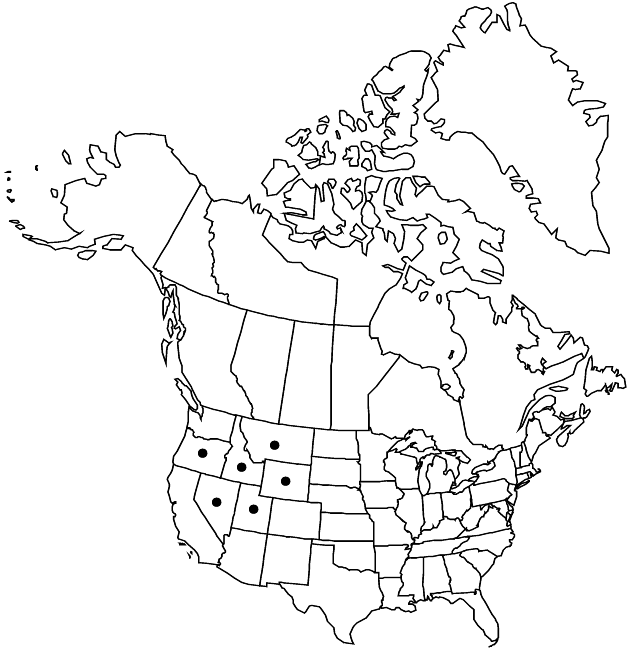Senecio sphaerocephalus
Pittonia 3: 106. 1896.
Endemic
Synonyms: Senecio altus Rydberg Senecio latus Rydberg Senecio lugens var. hookeri D. C. Eaton
Revision as of 19:59, 5 November 2020 by imported>Volume Importer
Perennials, (30–)40–80 cm (rhizomes stout). Herbage tomentose, unevenly glabrescent. Stems single. Leaves reduced distally; petiolate; blades oblanceolate to elliptic, 4–12× 1–4 cm, bases tapered, margins weakly dentate or denticulate (denticles callous; mid leaves similar, smaller; distal leaves bractlike). Heads (3–)5–24 in corymbiform arrays. Calyculi of 1–5 bractlets (longest 2–3 mm). Phyllaries (± 13) ± 21, 3–7 mm, tips black or brownish. Ray florets ± 13; corolla laminae 6–10 mm. Cypselae usually hairy, sometimes glabrous. 2n = 40.
Phenology: Flowering spring–early summer.
Habitat: Open meadows, especially in coniferous associations
Elevation: 1000–1800 m
Distribution

Idaho, Mont., Nev., Oreg., Utah, Wyo.
Discussion
Selected References
None.
Lower Taxa
None.